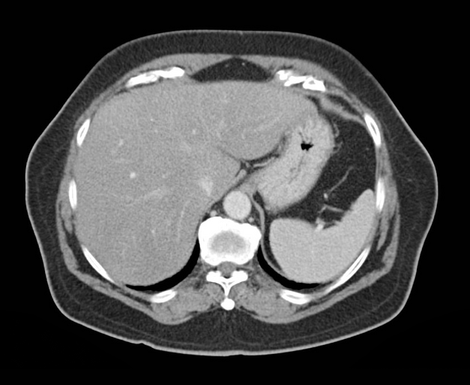Brain fog causes mental cloudiness, impacting focus and memory. Learn about its symptoms, causes, and ways to manage it.
Concentration difficulties, forgetfulness, fatigue, and lack of motivation: These symptoms can be signs of brain fog, a condition that can significantly impair cognitive performance.
Brain fog can lead to major limitations. Affected individuals are often unable to think clearly. In particular, brain fog is frequently mentioned as one of the many symptoms associated with long COVID.
In this article, we will take an in-depth look at the topic of brain fog, the associated symptoms and causes, as well as possible strategies to cope with brain fog.
What is Brain Fog?
"Brain fog" isn't a medical diagnosis, but a descriptive term for a cluster of cognitive symptoms. Individuals experiencing brain fog often report difficulty concentrating, memory lapses, persistent fatigue, and a general sense of mental cloudiness.
It's important to understand that brain fog is a symptom, not a disease itself, and typically arises as a consequence of underlying health conditions.
What are the Symptoms of Brain Fog?
The symptoms of Brain Fog syndrome include:
- Forgetting names or dates
- Difficulty finding words
- Concentration issues
- Lack of motivation
- Problems with multitasking
Brain Fog is typically temporary. This means that once the underlying cause or condition is treated, the symptom of Brain Fog usually subsides.
Brain Fog can affect many groups, including people with attention deficit hyperactivity disorder (ADHD), chronic pain, long COVID, sleep disorders, eating disorders, and other complex conditions. Depending on the cause, there are various ways to manage Brain Fog.
What Causes Brain Fog?
Brain fog, that frustrating feeling of mental fuzziness, remains a complex puzzle. While a single, definitive cause is elusive, emerging research points to several key factors.
Inflammation
One prominent theory centers on neuroinflammation. Brain cells communicate via intricate signaling networks. When inflammation disrupts these networks, it can impair cognitive function, leading to difficulty concentrating and processing information. Studies have shown that inflammation can damage nerve cells, hindering their ability to transmit signals effectively.
Microclots and Oxygen Deprivation
Recent investigations, particularly in long-COVID patients, suggest that microscopic blood clots might play a significant role. Brain examinations have revealed inflammation alongside fibrinogen deposits, a protein crucial for blood clotting. The hypothesis is that these microclots could impede oxygen delivery to the brain, contributing to brain fog symptoms.
It's important to recognize that brain fog can also stem from a variety of other factors, including:
Stress
When the body is under stress, it releases higher levels of stress hormones such as cortisol. Elevated cortisol levels can cause nerve cells in the hippocampus—the brain region responsible for memory and learning—to shrink, leading to cognitive impairment and difficulties in retaining new information.
Chronic stress not only leads to mental exhaustion and concentration problems but is also linked to an increased risk of depression. Additionally, cortisol promotes the production of free radicals, which can damage brain cells. Over time, this oxidative stress may contribute to neurodegenerative diseases such as Alzheimer's and dementia.
Lack of Sleep
Poor sleep quality is closely associated with cognitive decline and reduced mental performance. Sleep disorders are among the most common causes of chronic sleep deprivation, with conditions such as:
- Insomnia – Difficulty falling or staying asleep
- Narcolepsy – Excessive daytime sleepiness and sudden sleep attacks
- Restless Leg Syndrome (RLS) – Uncontrollable urge to move the legs, often accompanied by discomfort at night
- Sleep Apnea – Pauses in breathing during sleep, leading to poor oxygen supply and frequent awakenings
These disorders can result in chronic fatigue and sleep deprivation, both of which are linked to impaired brain function. Poor sleep affects memory consolidation, decision-making, and emotional regulation, increasing the risk of cognitive decline over time.
Hormonal Changes
Fluctuations in hormone levels can significantly impact cognitive function and contribute to brain fog. This is particularly evident during menstruation, pregnancy, and menopause, when hormonal shifts can lead to temporary cognitive impairments.
Studies suggest that some women experience difficulty concentrating after ovulation and in the days leading up to their period. Similarly, during pregnancy, levels of progesterone and estrogen rise rapidly to support fetal development, but these hormonal changes can also affect cognitive performance. Many pregnant and postpartum women report memory issues, often referred to as "pregnancy brain."
During menopause, the body undergoes a significant decline in estrogen production, which can impact brain function. Estrogen plays a crucial role in maintaining nerve cell integrity and regulating cerebral blood flow. A drop in estrogen levels can lead to reduced blood circulation in the brain, potentially affecting memory, concentration, and overall cognitive health.
Nutrition
In addition to hormonal imbalances, nutritional deficiencies can contribute to brain fog. The brain relies on a steady supply of essential vitamins and minerals to function optimally. A lack of these nutrients can lead to cognitive impairment, fatigue, and difficulty concentrating.
- Vitamin B12: Vitamin B12 is essential for nerve function, red blood cell production, and DNA synthesis. A deficiency can result in nerve damage, leading to memory problems and cognitive decline.
- Vitamin B1 (Thiamine): Thiamine plays a key role in energy production and neurotransmitter metabolism. A deficiency can reduce energy availability in the brain, impairing cognitive performance.
- Vitamin B6: Vitamin B6 is necessary for the production of neurotransmitters such as serotonin, dopamine, and GABA, which regulate mood and cognition. A deficiency can lead to imbalances in these neurotransmitters, affecting mental clarity.
- Vitamin B9 (Folic Acid): Folic acid supports DNA and RNA synthesis, crucial for brain cell repair and function. A deficiency may lead to cognitive decline and slower information processing.
- Vitamin D: Vitamin D regulates inflammation and supports neurotransmitter function. A deficiency has been linked to cognitive impairment, brain fog, and increased fatigue.
- Omega-3 Fatty Acids: Omega-3s are crucial for brain cell health and communication. These essential fatty acids help maintain cognitive function and protect against neurodegeneration.
- Iron: Iron is vital for oxygen transport to the brain. A deficiency can cause fatigue, brain fog, and reduced cognitive performance.
- Magnesium: Magnesium supports enzymatic reactions in the brain, protects the blood-brain barrier, and helps regulate neuronal activity. A deficiency can contribute to mental fatigue and difficulty concentrating.
- Vitamin C: Vitamin C is a powerful antioxidant that protects brain cells from oxidative stress and supports dopamine production, which is essential for focus and motivation.
- Choline: Choline is a key component of phospholipids, which make up brain cell membranes. It also has antioxidant properties that help protect against free radical damage, supporting memory and cognitive function.
Medications
Brain fog can not only result from stress, lack of sleep, hormonal imbalances, or nutritional deficiencies but also occur as a side effect of certain medications.
- Sedatives and painkillers: Some sleeping pills and painkillers can impair cognitive function, leading to brain fog, drowsiness, and slow thinking.
- Cancer treatments: Brain fog is also commonly reported after chemotherapy, a condition often referred to as "chemo brain." While the exact causes are not yet fully understood, it is believed to result from inflammation, oxidative stress, and changes in brain structure following cancer treatment.
Diseases
Various diseases that cause inflammation, fatigue, or fluctuations in blood sugar levels can contribute to mental fatigue and brain fog.
One example is chronic fatigue syndrome (CFS), a condition characterized by persistent and extreme exhaustion. Many CFS patients report difficulties with concentration, memory, and mental clarity.
The following conditions have also been linked to brain fog:
- Anemia – Reduced oxygen supply to the brain can lead to fatigue and cognitive impairment.
- Mental health disorders – Conditions such as depression and anxiety can affect focus, memory, and mental processing speed.
- Chronic pain – Disorders like fibromyalgia often involve widespread pain and cognitive dysfunction, sometimes referred to as "fibro fog."
- Diabetes – Fluctuating blood sugar levels can impair brain function and lead to fatigue, confusion, and difficulty concentrating.
- Migraines – Many migraine sufferers experience cognitive difficulties before, during, or after an attack.
- Hypothyroidism – An underactive thyroid slows metabolism, leading to fatigue, sluggish thinking, and memory issues.
- Dehydration – Even mild dehydration can reduce blood flow to the brain, impairing focus and cognitive function.
- Long COVID – Many individuals recovering from COVID-19 report lingering brain fog, which may result from inflammation, oxygen deprivation, or immune system overactivity.
- Sleep disorders – Conditions such as insomnia, sleep apnea, and restless leg syndrome can disrupt sleep quality, leading to daytime mental fatigue.
- Eating disorders – Malnutrition and nutrient deficiencies caused by conditions like anorexia or bulimia can negatively impact brain function.
In summary, brain fog is likely a multifaceted condition with potential causes ranging from neuroinflammation and microclots to hormonal changes and stress. Further research is crucial to fully understand its origins and develop effective solutions.
How to Deal with Brain Fog
If you experience Brain Fog, focus on a balanced diet, regular exercise, sufficient sleep, and stress reduction.
Proper Diet
Addressing potential nutrient deficiencies can sometimes help alleviate brain fog. Key nutrients for brain health include vitamin D, omega-3 fatty acids, magnesium, vitamin C, the B-vitamin complex, and zinc. However, research on the effectiveness of vitamin supplementation for brain fog remains inconclusive, as large-scale clinical trials are still lacking.
Hydration
Many people experience brain fog symptoms like fatigue, dizziness, and difficulty concentrating due to dehydration. Even a slight fluid loss of 2% can significantly impair cognitive function.
Since the brain is about 76% water, staying hydrated is crucial for optimal performance. Aim to drink at least 2.5 liters of water or unsweetened tea per day to keep your brain well-supplied with fluids.
Fasting
ntermittent fasting, which involves alternating periods of eating and fasting, has been linked to several cognitive benefits. The effects of intermittent fasting on brain function include:
- Improved Brain Plasticity: Fasting increases levels of BDNF (Brain-Derived Neurotrophic Factor), a protein that supports learning and memory.
- Reduced Inflammation: Fasting helps lower inflammation, which is associated with cognitive decline.
- Enhanced Energy Supply: Fasting improves mitochondrial efficiency, ensuring brain cells receive optimal energy.
To maximize benefits and minimize side effects, make sure to stay well-hydrated while fasting.
Stress Reduction
Chronic stress negatively impacts brain function in several ways:
- Memory Impairment: Long-term stress causes nerve cells in the hippocampus (the brain’s memory center) to shrink, leading to forgetfulness and learning difficulties.
- Increased Anxiety: Stress overstimulates the amygdala, the brain’s fear-processing center, making it harder to think rationally.
- Oxidative Damage: Stress triggers the release of cortisol, which promotes free radical formation, potentially damaging brain cells and increasing the risk of neurodegenerative diseases.
To counteract stress, try incorporating relaxation techniques such as meditation, yoga, or deep breathing into your daily routine.
Exercise
Physical activity is essential for maintaining cognitive function. Exercise improves blood circulation, ensuring that brain cells receive sufficient oxygen and nutrients to enhance concentration and mental clarity.
Additionally, exercise stimulates the growth of new nerve cells, which can improve memory and learning ability. Even small changes—such as taking a walk, stretching during work breaks, or trying new movements—can have a positive impact on brain health.
Conclusion
Brain fog refers to a state of impaired cognitive function, characterized by difficulty concentrating, forgetfulness, fatigue, and mental sluggishness.
Its causes are diverse, ranging from chronic stress, sleep deprivation, and hormonal imbalances to medical conditions such as long COVID, diabetes, and hypothyroidism. In addition to the core symptoms, brain fog can also manifest as trouble finding words, difficulties with multitasking, and slowed information processing.
The most effective way to combat brain fog is to address its root cause. Additionally, managing stress, maintaining a balanced diet, staying active, and prioritizing good sleep can help improve mental clarity and overall cognitive function.
If you're experiencing persistent brain fog, a full-body MRI scan can provide valuable insights into your overall health and help detect potential underlying conditions early. Take control of your well-being—schedule your MRI today and gain clarity about your health.








